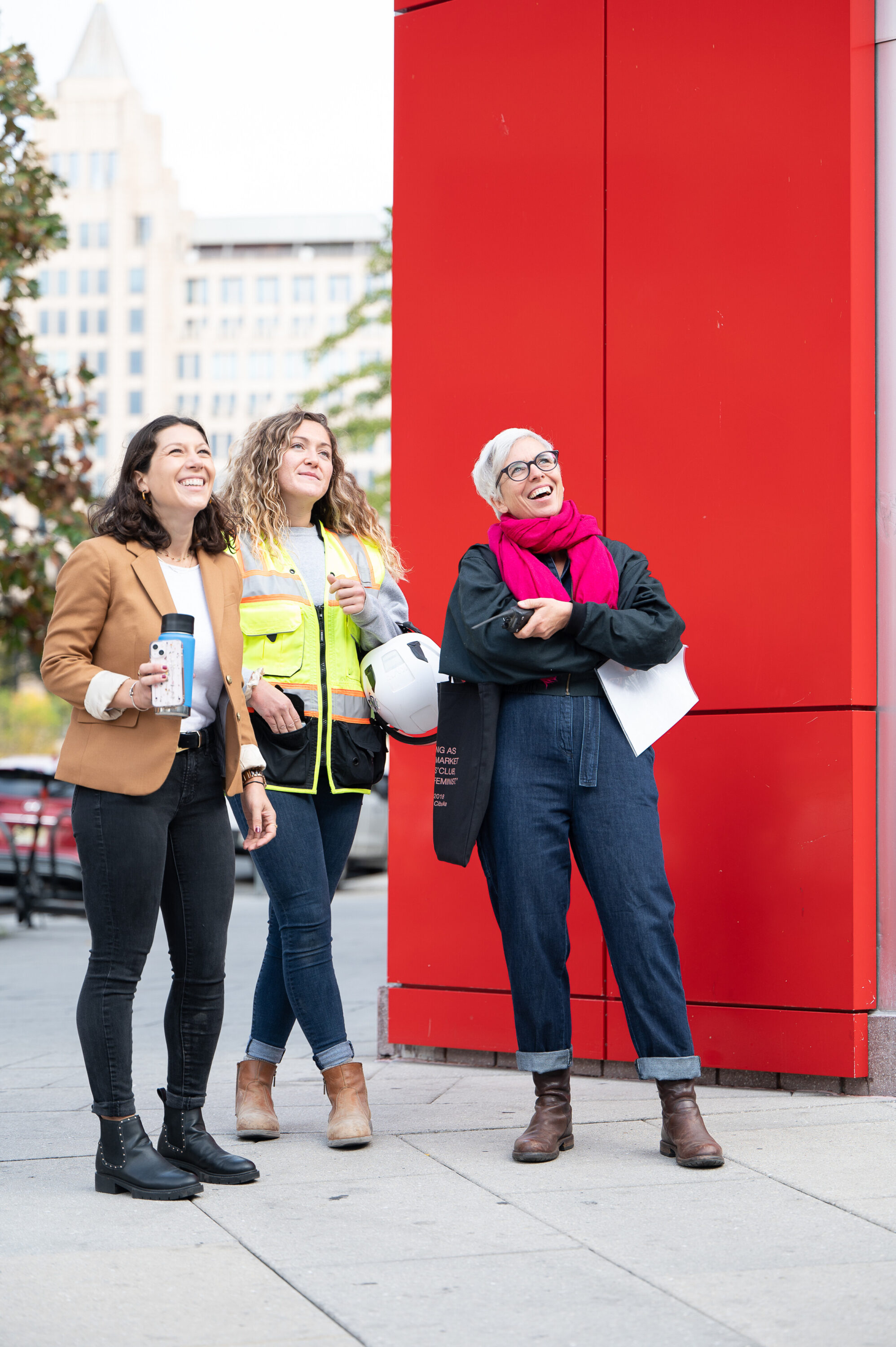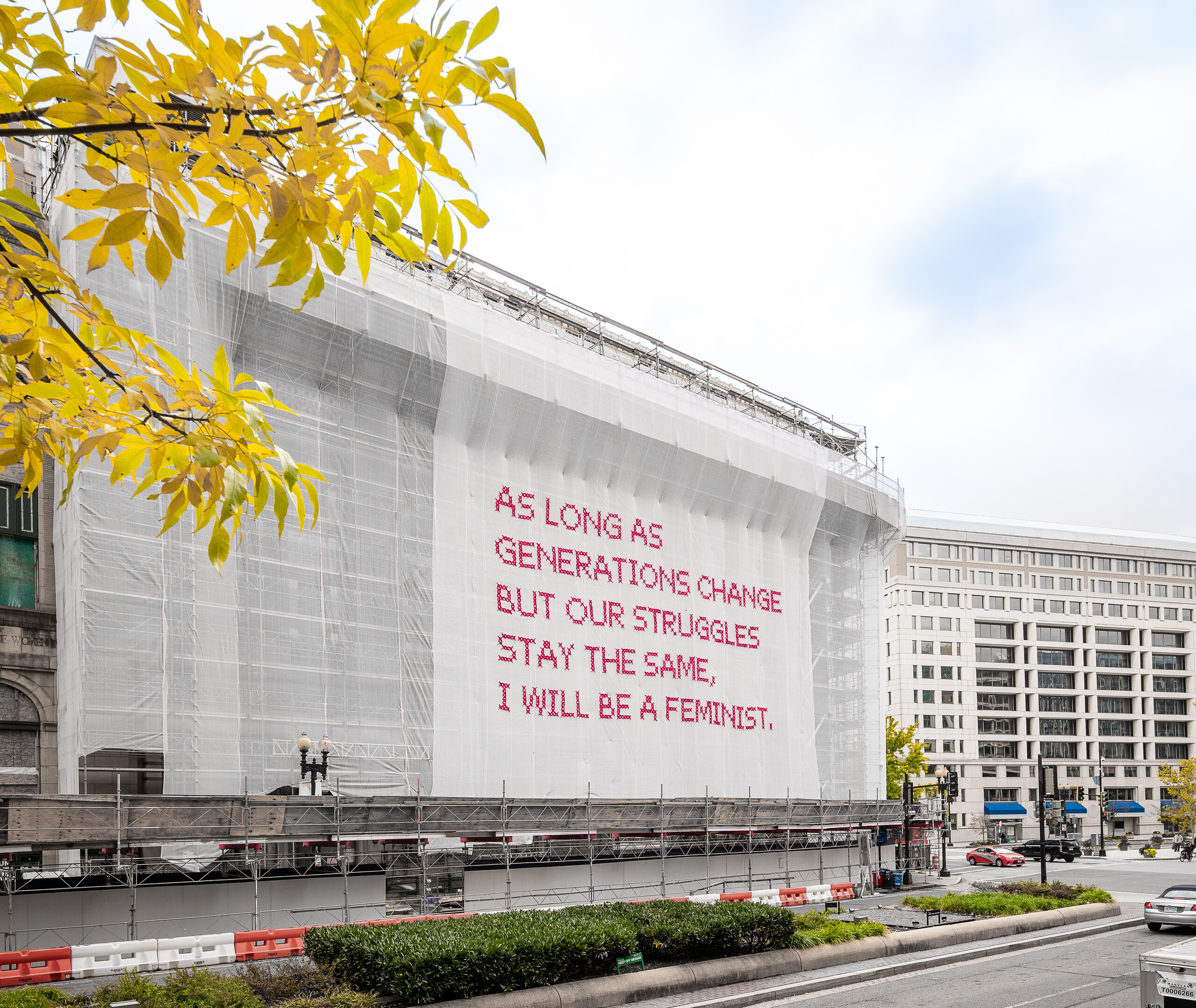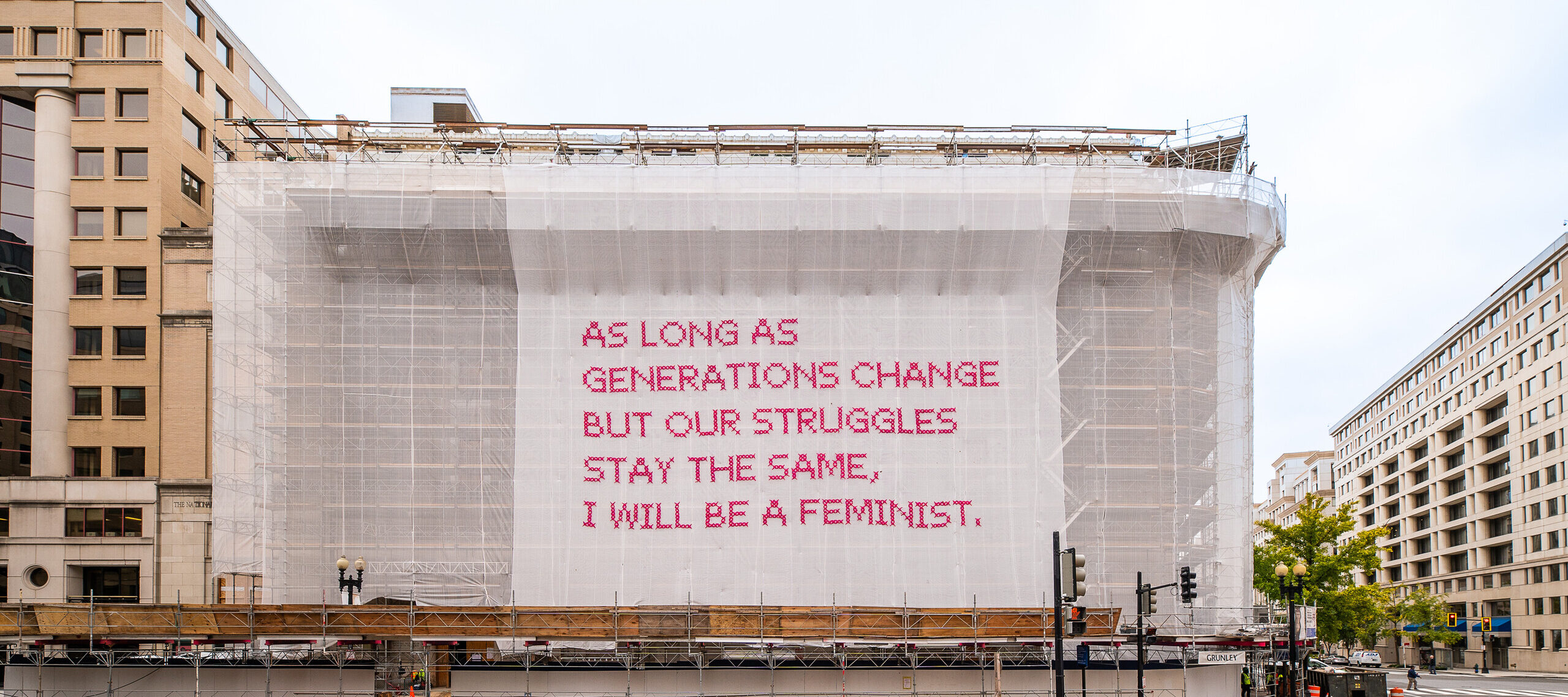With her team, Austrian artist Katharina Cibulka developed the series “SOLANGE” (German for “as long as”) and created a large-scale work now on view on the museum’s façade that reads, “As long as generations change but our struggles stay the same, I will be a feminist.” In this series, monumental nets are cross-stitched with tulle and cable ties on construction scaffolding. Their messages raise awareness and voice the continued need for feminist action.
NMWA Exhibition Coordinator Hannah Shambroom spoke with Cibulka about her process.

Hannah Shambroom: You create these works through a communal process, reaching out to members of the communities in which your work is sited. What are some of the most enlightening insights you’ve gotten from the public?
Katharina Cibulka: First I’d like to note that I am speaking from the perspective of a white, cisgender woman who lives in a privileged Central European country. I’m an activist for intersectional gender equality, and I am aware that I speak from a privileged point of view and that I make mistakes because of it. I consider it one of the greatest gifts of this work to continuously question my position and grow. I’d like to share two very different examples to illustrate the wide scope of insights “SOLANGE” has brought forth:
1: Insights from workshops
During one workshop, a 16-year-old boy said to me: “What, you’re a feminist?! I thought feminists were all manhaters.” What a surprise to see such a rigid idea at such a young age!
I often receive messages from older women congratulating me on my work and sharing stories of their activism from 40 years earlier, when they also protested for equal pay, 50/50 care work, equal opportunities, and the freedom to choose what happens with their bodies. They can hardly believe that “the young ones” still have to stand up for the exact same rights today. In fact, it is shocking to see how rights that we gained years or decades ago are once again questioned or dismantled.
2: Insights from the Catholic community
In the early phase of “SOLANGE,” we were hoping to install a net on the Cathedral of Innsbruck, Tyrol, my hometown. Tyrol is a very conservative and traditionally religious part of Austria. It was a challenging process, as we didn’t know how far the dean and his team would be willing to go. We handed in several sentences ranging from very subtle to more forceful and were thrilled when they picked our favorite one: “AS LONG AS God has a beard, I will be a feminist.”
Imagery is a powerful tool and we were quite surprised when the dean insisted that we change the feminin form of the German word for feminist (Feministin) to the masculine form (Feminist). He said that he wanted to make it very clear that he supported the sentence and considered himself a feminist!

HS: How is community important to your work?
KC: If we want to tackle today’s major global challenges, we need communities and togetherness. The last decades have been marked by individualism and egocentricity and we can all see where it has taken us. Talking to each other is the key to a new, more equitable world. When we share and come to understand how and why someone thinks and acts the way they do, we can empathize, discuss, and change our deep-rooted patterns. We are part of the problem, but we’re also the solution. It may sound a bit corny, but it’s so true! Especially when it comes to equality.
